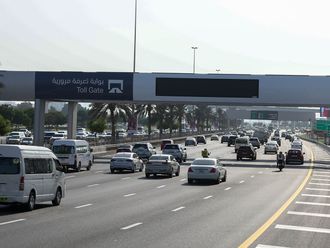Singapore: Singapore will spend S$5.5 billion (Dh14.29 billion) in the next five years to boost productivity in the city state, Finance Minister Tharman Shanmugaratnam said.
The government will pledge S$1.1 billion annually through tax benefits, grants and training subsidies to improve efficiency, Shanmugaratnam told Parliament yesterday in the nation's budget speech. The target of 2 per cent to 3 per cent productivity growth a year for the next decade will be a "major challenge", he said.
Singapore is considering ways to ensure its economy expands in a more sustained manner after three recessions in the past decade, with its most recent slump the deepest since independence in 1965. A government-appointed panel this month outlined seven proposals to restructure the economy including raising productivity and relying less on foreign labour, a move that may increase costs for companies such as oil-rig builder SembCorp Marine Limited.
Benefits
"We have to restructure our overall economy towards higher-value activities and exit from less efficient ones," the minister said. "We will give significant tax benefits to businesses that invest in skills and innovation, thereby lowering their effective tax rates. We will also provide grants for customised, industry-based initiatives."
The government has said it wants to boost productivity to make up for an anticipated slowdown in growth as the nation becomes more developed.
"Raising skills and productivity is the only viable way we can achieve higher wages, and is the best way to help citizens with low incomes," Shanmugaratnam said. "If we achieve this goal, we can raise real incomes by one-third in 10 years."
Singapore's productivity rate lags behind that of the US, Japan and other countries, the Economic Strategies Committee said this month.
Growth
Productivity in manufacturing and services is about 55 per cent to 65 per cent of the levels in the US and Japan, it said.
Productivity growth of between 2 per cent and 3 per cent annually will help GDP increase by 3 per cent to 5 per cent per annum in the next 10 years, Shanmugaratnam said. The rate averaged 1 per cent in the last decade.
"The scope to improve is clearly there, but the easy gains in productivity are over," the minister said.
An influx of foreign workers, currently accounting for one out of every three people in Singapore, has been blamed for the slow-down in productivity.
Singapore will increase levies for companies hiring foreign workers as the country attempts to depend less on overseas labour, Shanmugaratnam said. Levies will be increased in a phased manner over the next three years, he added.












